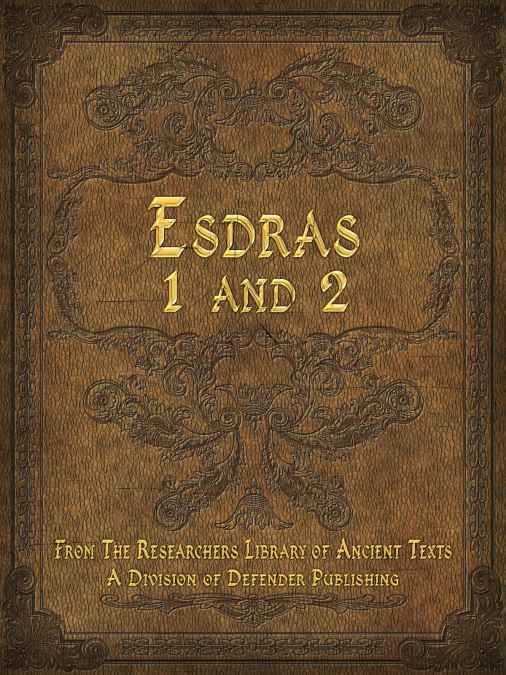
Books of Esdras (1 & 2) PDF
2012·0.2419 MB·other
Most books are stored in the elastic cloud where traffic is expensive. For this reason, we have a limit on daily download.
Preview Books of Esdras (1 & 2)
Description:
While no other text can claim this same unique authority,
Apocryphal and Pseudepigraphal literature such as contained in the first
volume of The Researchers Library of Ancient Texts (Volume One—The
Apocrypha: Includes the Books of Enoch, Jasher, and Jubilees; also
available on Kindle), provides literature that often precedes or follows
the chronology of biblical texts, which frequently are used or assigned
as supplemental works within academic settings to help students and
scholars discover or better understand cultural and historical context
within the Word of God. Whether or not the information contained in the
apocryphal literature is entirely precise—as is the canon of
Scripture—these ancient texts provide commentators’ valuable insight
into what many ancient Jews and early Christians believed when, “God,
who at sundry times and in divers manners spake in time past unto the
fathers by the prophets” (Heb. 1:1).
"First Esdras contains the whole of Ezra with the addition of one section; its verses are numbered differently. Just as Ezra begins with the last two verses of 2 Chronicles, 1 Esdras begins with the last two chapters; this suggests that Chronicles and Esdras may have been read as one book at sometime in the past. Ezra 4:6 includes a reference to a King Ahasuerus. Etymologicaly, Ahasuerus is the same as Xerxes, who reigned between Darius and Artaxerxes...in 1 Esdras, Cyrus the Great, Darius the Great, and Artaxerxes I appear in their historical order." --Wikipedia
The Books of Esdras (1 & 2) are available in The Researchers Library of Ancient Texts (Volume One—The Apocrypha: Includes the Books of Enoch, Jasher, and Jubilees; also available on Kindle), as well as The Book of Enoch, The Book of Jasher, The Book of Jubilees, 1 Esdras, 2 Esdras, 1 Maccabees, 2 Maccabees, Tobias, Sirach, Wisdom, Judith, Baruch, Susanna, Prayer of Azariah, Prayer of Manasseh, Bel and the Dragon, and Laodiceans.
"First Esdras contains the whole of Ezra with the addition of one section; its verses are numbered differently. Just as Ezra begins with the last two verses of 2 Chronicles, 1 Esdras begins with the last two chapters; this suggests that Chronicles and Esdras may have been read as one book at sometime in the past. Ezra 4:6 includes a reference to a King Ahasuerus. Etymologicaly, Ahasuerus is the same as Xerxes, who reigned between Darius and Artaxerxes...in 1 Esdras, Cyrus the Great, Darius the Great, and Artaxerxes I appear in their historical order." --Wikipedia
The Books of Esdras (1 & 2) are available in The Researchers Library of Ancient Texts (Volume One—The Apocrypha: Includes the Books of Enoch, Jasher, and Jubilees; also available on Kindle), as well as The Book of Enoch, The Book of Jasher, The Book of Jubilees, 1 Esdras, 2 Esdras, 1 Maccabees, 2 Maccabees, Tobias, Sirach, Wisdom, Judith, Baruch, Susanna, Prayer of Azariah, Prayer of Manasseh, Bel and the Dragon, and Laodiceans.
See more
The list of books you might like
Most books are stored in the elastic cloud where traffic is expensive. For this reason, we have a limit on daily download.
